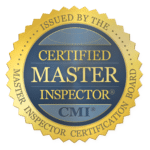Central Florida Four Point Inspection
Fast & Easy Scheduling
Same Day Reports

- Customer Service Areas
- Orange County
- Seminole County
- Lake County
- Volusia County
- and Surrounding Areas
The Best Central Florida Four Point Inspection Services
If your home is aged,, you may need a Four-Point Insurance Inspection to qualify for insurance coverage. This inspection focuses on four critical areas of your home—Roofing, Electrical, Plumbing, and HVAC—to ensure everything is in working order and doesn’t pose a risk to insurers. A Four-Point Inspection isn’t just for your insurer’s benefit. As a homeowner, it gives you peace of mind knowing that your home is in good shape and meets modern safety standards. Let’s dive into what this inspection covers and how you can prepare for it.
900+ 5-Star Reviews
Subscribe to Receive Our Free Point Checklist & Exclusive Discount!

A Note From The Owner
Hello,
Thank you for choosing us for your insurance inspection needs. We understand the critical nature of these assessments in protecting you and your family, and reducing your homeowner’s insurance costs.
Our commitment to you is reflected in our excellent online reviews. We consider ourselves problem solvers, which ensures unparalleled service quality.
Thank you again for trusting us and we all look forward to the opportunity to work with you.
– Sean Richards | Certified Master Inspector

About a Central Florida Four Point Inspection
This inspection is a snapshot of your primary home’s major systems. It’s known as a 4-Point Inspection because it examines the four major systems of a home: Roof, Electrical, Plumbing, HVAC
A Four Point Inspection is often required on homes older than 8-10 years in Florida. This inspection is often purchased at the time of the home inspection or when it is time to renew your Homeowner’s Insurance Policy.
Why Do Insurance Companies Require it?
Older homes often come with increased risks, especially in four key areas: the roof, electrical system, plumbing, and HVAC. Before providing coverage, insurance companies need to ensure these systems are in good condition.
A Four-Point Inspection focuses on the areas most prone to problems like water damage, electrical fires, and system failures—all of which can lead to expensive insurance claims. By evaluating the condition of your home’s major systems, insurers can determine whether to approve your policy and how much to charge for coverage.
Keeping these systems well-maintained not only protects your home but also improves your chances of securing affordable insurance.
How Do I Pass a Four Point Inspection?
Passing a four-point inspection is not as impossible as it may seem, so rest easy. Check out our recommendations below:
The Four Key Areas of a Four-Point Insurance Inspection
Here’s what you can expect from a Four-Point Insurance Inspection:
1. Roofing
What’s inspected?
The inspector examines the age, materials, and overall condition of your roof. They will note any missing shingles, leaks, or signs of damage.
Why it matters:
Insurance companies usually require roofs to have 3-5 years of remaining life. If your roof is worn or damaged, your insurer may require repairs or replacement before issuing coverage.
2. Electrical System
What’s inspected?
Inspectors assess your home’s wiring type (such as aluminum, knob-and-tube, or modern copper), electrical panel condition, and check for any safety hazards.
Why it matters:
Outdated or faulty electrical systems increase the risk of house fires—a top concern for insurers. Homes with older wiring often need upgrades to qualify for insurance coverage.
3. Plumbing System
What’s inspected?
The inspector will evaluate your plumbing materials (copper, PVC, polybutylene, galvanized steel, or cast iron), check for leaks, and look for water damage.
Why it matters:
Leaky or outdated plumbing can cause water damage and mold, both costly to repair. Insurance companies prefer homes with well-maintained plumbing systems to reduce potential risks.
4. HVAC (Heating, Ventilation, and Air Conditioning)
What’s inspected?
Your heating and cooling systems are checked for proper installation, maintenance, and efficiency. Inspectors also look for potential safety hazards or moisture intrusion issues.
Why it matters:
Older HVAC systems can be inefficient and pose safety concerns. A well-maintained HVAC system ensures comfort and increases your chances of securing insurance coverage.
Why It’s Important to Maintain These Systems
While older homes have charm, they often come with outdated systems that could present risks. Insurance companies are particularly concerned about: Old roofs: Prone to leaks and weather damage Outdated wiring: Higher fire risk, especially with knob-and-tube or aluminum wiring Deteriorating plumbing: Corrosion or leaks can cause costly water damage Aging HVAC systems: Inefficient and possibly dangerous if not maintained. If the inspection reveals issues in any of these areas, your insurer may require you to make repairs or upgrades before offering coverage.
What Happens After the Inspection?
Once the inspection is complete, the inspector will submit their findings to your insurance company. Based on the results, your insurer will decide if they can offer you coverage. The possible outcomes include: Approval: If all systems are in good condition, your policy will be approved. Conditional Approval: You may need to make repairs or upgrades before the insurance is finalized. Denial: In rare cases, if your home’s systems are in poor condition, the insurer may deny coverage until the issues are addressed. The inspection report will include detailed notes and photos of each system. If repairs are needed, it’s important to address them quickly to avoid delays in getting insured.
Securing Insurance for Your Older Home
A Four-Point Insurance Inspection is a key part of securing insurance for older homes. While it may seem like another hurdle, it’s a necessary step to ensure that your home’s essential systems are in good working order and that you can get the coverage you need. By focusing on your roof, electrical, plumbing, and HVAC systems, this inspection helps protect both you and your insurance company from potential risks. And as a homeowner, it provides valuable insight into your property, allowing you to make any necessary repairs and improvements before they turn into bigger—and more expensive—problems.
Need a Four-Point Inspection? Make sure your home meets insurance standards today! Contact us to schedule your Central Florida Four Point inspection and keep your property—and your insurance—on track.
What Are Common Defects Found During a 4-Point?
See below for a few common defects found during a 4-Point Inspection:
Should I Update My Wind Mitigation Inspection Also?
You can save $100 just by scheduling both a Four Point Home Inspection and a Wind Mitigation at the same time! Ask your insurance provider today if you could benefit from both reports.
Four Point Inspection Cost
Combo Four Point & Wind Mitigation Inspection
Combination Inspection-
Best Position to Shop For Insurance
-
Maximize Insurance Discounts
-
Same Day Reports
-
Flexible Scheduling
Four Point Inspection
Stand Alone Inspection-
No Wind Mitigation Insurance Discounts
-
Same Day Reports
-
Flexible Scheduling
-
Weekend Appointments
Central Florida Property Inspections:
Experience You Can Trust
Our Service Areas
Service Areas: Altamonte, Apopka, Auburndale, Daytona Beach, Clermont, Debary, Deltona, Edgewater, Eustis, Geneva, Kissimmee, Lakeland, Lake Mary, Longwood, Maitland, Minneola, Mount Dora, New Smyrna, Orlando, Oviedo, Sanford, St. Cloud, Titusville, Tavares, Windermere, Winter Garden, Winter Park, Winter Springs
Please follow the links below to connect with us and allow us the opportunity to earn your business.
